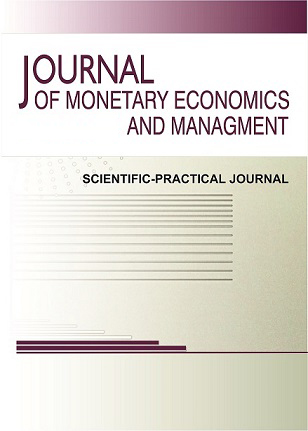Lyubertsy, Moscow, Russian Federation
Ensuring energy security is one of the state's key and priority tasks, as a stable and uninterrupted supply of energy resources is essential for economic development, social stability, and national security. The article examines the trends in the energy independence indicator of the main BRICS member states and the specific features of these trends in the context of active integration processes. The coefficients of the trend models of energy independence in the studied countries are evaluated. The analysis of the interconnections between the energy independence indicators of the BRICS countries is presented. The most significant connections and the role of China in them are identified. The sensitivity of the models to external changes is determined. The analysis of the impact of energy cooperation between countries is conducted using the methods of variance analysis. Significant differences in the level of the indicator between countries are identified. The significant influence of the time factor and the interaction factor on the indicator level has been determined.
BRICS, energy, energy independence, energy security, process sensitivity, sustainable systems
1. Rudenko, M. N. Dinamika obespecheniya energeticheskoy bezopasnosti stran BRIKS / M. N. Rudenko // Ekonomicheskaya bezopasnost'. – 2024. – T. 7, № 11. – S. 2823-2840. – DOIhttps://doi.org/10.18334/ecsec.7.11.122090
2. Podoba Z., Kryshneva D. «Zelenaya energetika» v stranah BRIKS // Mirovaya ekonomika i mezhdunarodnye otnosheniya, 2018, tom 62, №2, s.17-27.
3. Meyyar D. Indeks energeticheskoy nezavisimosti: v chem protivorechie? MAILLARD D. Le taux d’independence energetique: a quoi rime la controverse? // Rev. de l’energie. – P., 2000. – № 522. – P. 581-584.
4. Hudyakova O.Yu. Model' eksporta stran BRIKS s determinirovannymi effektami // Vneshneekonomicheskaya deyatel'nost' v usloviyah global'nyh vyzovov. Sbornik statey po materialam Vserossiyskoy nauchno-prakticheskoy konferencii s mezhdunarodnym uchastiem. Moskva, 2024. S. 233-241.
5. Hudyakova O.Yu. Effekty mezhdunarodnoy torgovli EAES s Kitaem //Ekonomika i predprinimatel'stvo, № 8, 2025 g., s.425-428.
6. Solov'eva V.A., Yag'ya T.S. Deyatel'nost' Kitayskoy Narodnoy Respubliki v ramkah BRIKS // Rossiya v global'nom mire № 22(45), 2022, s.117-125.
7. Petrenko, E. S. Ekonomicheskaya bezopasnost' i interesy Rossii v BRIKS / E. S. Petrenko, A. V. Varlamov, Yu. G. Leschenko // Ekonomicheskie otnosheniya. – 2020. – T. 10, № 4. – S. 1295-1312. – DOIhttps://doi.org/10.18334/eo.10.4.111398
8. Ryazanova M.O. Energeticheskoe vzaimodeystvie v ramkah BRIKS: aktual'nost' voprosa //Vestnik MGIMO Universiteta, 2014. S.108-115.
9. Ryazanova M.O. Faktory mnogostoronnego energeticheskogo sotrudnichestva stran BRIKS // Rossiyskiy vneshneekonomicheskiy vestnik, №5, 2019, s.116-126.
10. Kurmanova, A. K. Rol' Kitaya v ekonomike stran BRIKS / A. K. Kurmanova // Ekonomicheskie otnosheniya. – 2024. – T. 14, № 4. – S. 763-778. – DOIhttps://doi.org/10.18334/eo.14.4.121848
11. Kovaleva O.V., Belozerov B.S. Potencial'nye mehanizmy obespecheniya energeticheskoy bezopasnosti v ramah BRIKS // Vestnik Moskovskogo Universiteta, SER. XXVII. Globalistika i geopolitika. 2015. № ¾, s.105-108.










